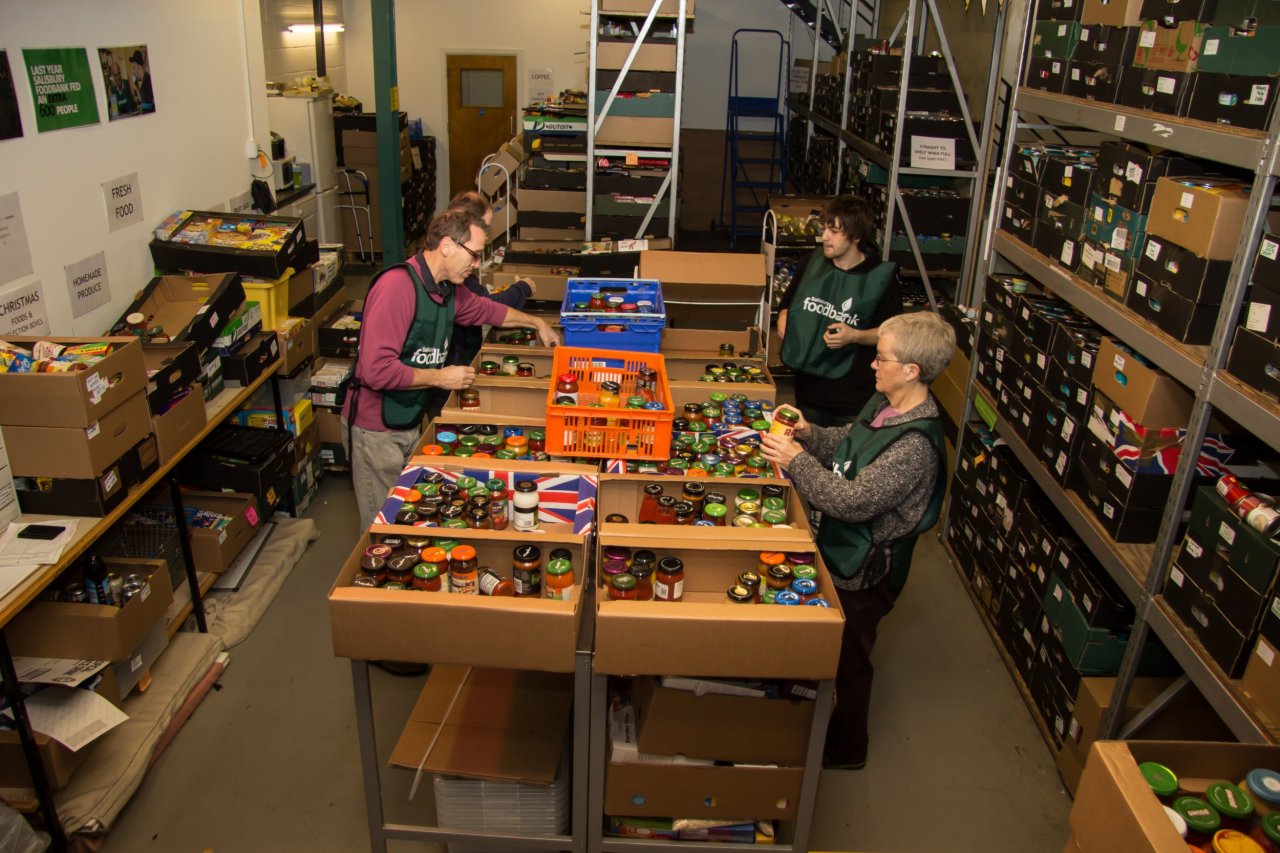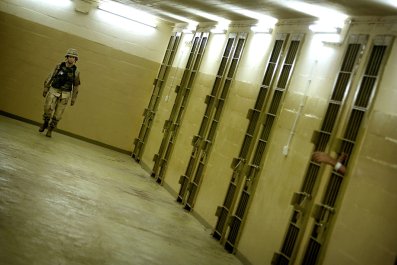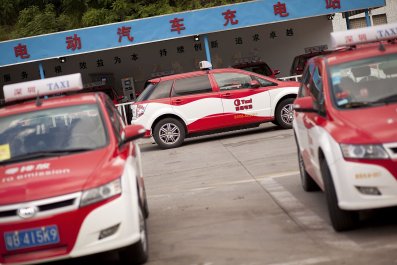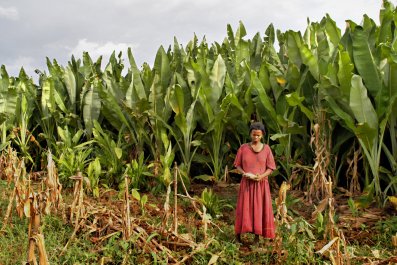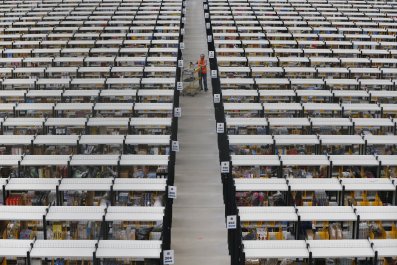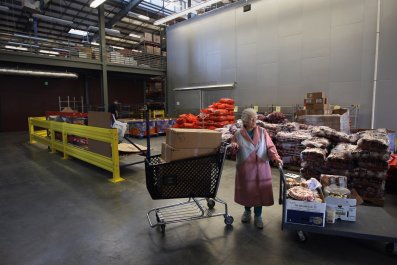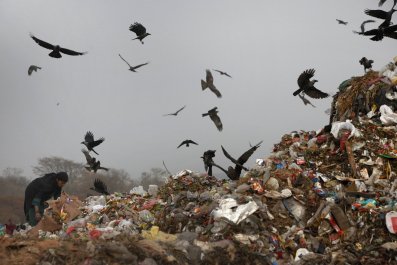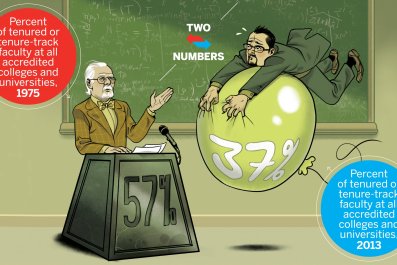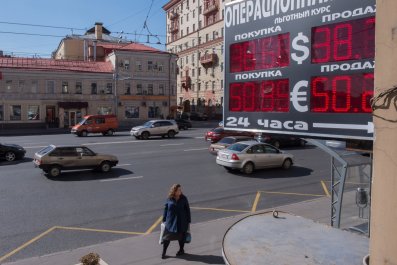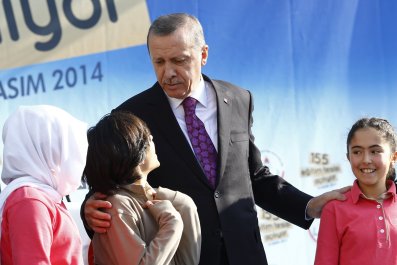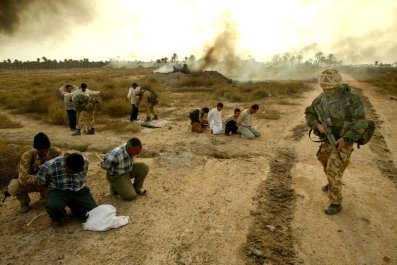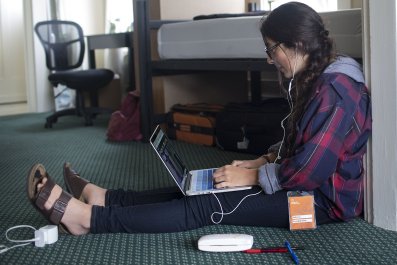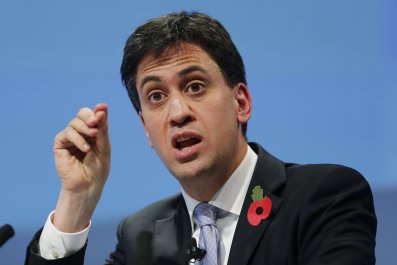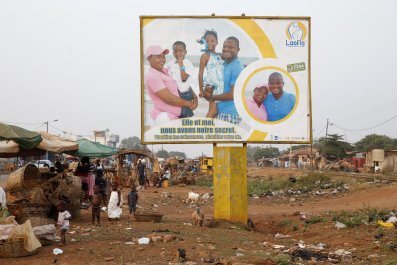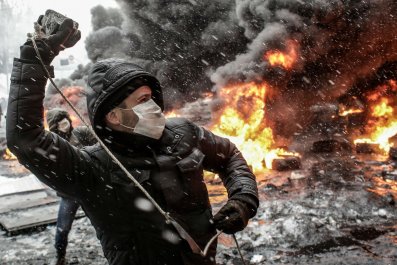Charles Dickens would be outraged. A giant, jolly Santa sways above a Christmas market in the centre of Birmingham, but a few steps away a young mother is asking for food. "We're living on jack shit," says Liz frankly. She is deathly pale and her children are sick, like characters in a Dickensian tale. They have not eaten properly for a week. "If these people were not here we would be right up the creek," she says, accepting bags of pasta from the volunteers at a food bank in a city-centre side street.
Food banks barely existed when the current government came to power in 2010, but this year they have fed a million people for free. "People would have died if we had not been there," says Chris Mould, chief executive of the Trussell Trust, the biggest provider of food banks in Britain. "People say to me, 'You saved my life.' They are not joking." Now the food bank movement has suddenly become a political force in the land, after the publication of a major report by an all-party group of MPs, peers, activists and church leaders calling for action to stop the "evil" of hunger that stalks the UK.
Feeding Britain demands a reform of the welfare system, an end to food waste and a national network of centres able to give the right help and advice. The prime minister has promised to look carefully at the report, and well he might: at least four million people have either given food or worked as volunteers in food banks in the last year, a level of engagement politicians of all kinds can only envy. They certainly can't ignore it.
"We are a movement of ordinary people who are tired of dry argument in Westminster, because they know that, on the ground, people are going hungry," says Mould. "This is a movement to be reckoned with. A community that cares."
Feeding Britain was partly financed by the Archbishop of Canterbury, Justin Welby, who says, "We need to look at what is driving hunger in our society and find creative ways to address those underlying causes." His Church of England is challenging government in a way it has not done since the 1980s, highlighting the gulf between rich and poor, but the archbishop insists that food banks are also a sign that Britain still cares. "I don't want to overplay the idea of division in our society, because the extraordinary growth of food banks over the last few years shows that actually there is a deep sense of care for one another and particularly for those who have least," Welby says.
So what is going on here? Why has the nation that invented the welfare state now fallen back on Victorian-style philanthropy? Even rickets, malnutrition and other long-lost maladies have risen up from the grave like the Ghosts of Christmas Past. "We should not be seeing rickets in Britain today," says John Middleton, vice president of the Faculty for Public Health. GPs in Birmingham, London and Manchester began to report the return of the childhood bone-softening disease during the worst of the recession. The number of hospital patients with rickets or vitamin D deficiency has trebled since 2009 to 4,638 in the last year, and even that does not give the full picture. "You don't need to be admitted to hospital for rickets, but there have been community surveys that have shown it to be increasing, so we should be concerned about that. We should regard these as markers of something not right in the nation's diet."
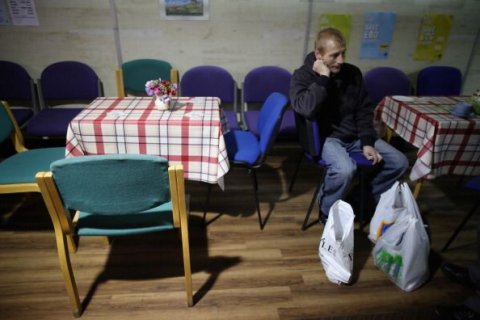
Both conditions can be caused by lack of sunlight as well as a poor diet, and some people have suggested the main cause of the rise is not poverty but children spending too long indoors playing on computer games. However, Newsweek has learned that 747 of the 881 patients admitted to hospital in England with rickets last year were under five years old. They would have to be remarkably precocious to spend all day on the PlayStation, suggesting instead that there is a problem with the way children are fed.
"People are making serious choices about whether to feed the meter or feed their family," says Middleton. Here lies the root cause of the crisis that has driven people to food banks, according to Feeding Britain. Food prices rose by nearly 50% in the decade to 2013. Fuel costs increased 153%. In the same time, the average rent went up by a third. Wages grew by just 28%. Some people just could not keep up, they lost the ability to cope with a crisis like the loss of a job – or even a small unexpected bill like a new pair of school shoes – and so began to turn to food banks in desperation.
The Trussell Trust started as a small Christian charity in Salisbury, Wiltshire. The first food bank opened in 2000, when a local woman asked an overseas aid worker where she could get help to feed her family. By 2010 it was running 50 of them. Now Trussell has 420 food banks working in a thousand locations across the country. There may be just as many run by other charities, churches, temples, mosques and community groups but nobody is sure. The research has not yet been done, because the rise has been so fast.
One thing we do know, surprisingly, is that many food bank users have jobs. "What has shocked people is the number of men and women on minimum wage levels who are hungry," says Frank Field, the Labour MP who is a driving force behind Feeding Britain. "How do we move to a fair living wage?"
The report calls for this to happen, along with more than 70 other measures including fairer energy prices, better use of surplus food and school lessons in budgeting. Feeding Britain also says the benefit system is cruelly inefficient at times and "punitive" in the way it sanctions people – or withdraws their payments temporarily – for mistakes like missing an appointment or filling in a form incorrectly. "There are a lot of people living on a financial knife edge where small changes in their income hit hard," says Mould. "You delay somebody's benefits by a couple of weeks, they have nowhere to turn."
That is true for Callum, a tall, grey-haired man with a haunted face. Birmingham Central Food Bank is a brightly-lit and welcoming place, with mince pies waiting on café-style tables and smiling volunteers who offer tea. But he looks lost. "I shouldn't be here," he says. A year ago he was managing a pub; then his partner was killed. "He was serving in Afghanistan, stepped on an explosive device," he says. "I couldn't cope with that."
Callum started drinking to obliterate the pain. Within a month, he was swallowing nine litres of the strongest cider every day, bought at cost price from the brewery. He lost his job and contemplated suicide, but months of rehab have saved him. Callum is aiming to be well enough to work in the New Year, but in the meantime he is starving. "They stopped my benefits because they said I didn't have a sick note. I did post it to them, but they lost it." The bureaucrats have admitted their mistake, but it will take a week to sort out and he has nothing in his cupboards. "I wouldn't come here if I could avoid it. I feel ashamed."
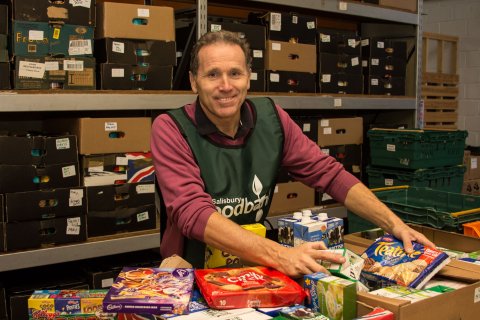
That is the kind of reaction often quoted by Patricia Wright, a former BBC journalist who started this place with her church, whenever people say food banks are used by freeloaders. "I have seen the embarrassment people feel. They cry. Some stand outside. From that, we know that they are not coming just because it's here. They need it," she says. "But they have left smiling, because we don't judge anyone. We welcome them all."
Food banks exist in many other countries – they have fed one in seven Americans – but the British approach modelled by Trussell is unique because of the way it tries to prevent people becoming reliant. They need a voucher signed by a GP, social worker or one of the referring charities and authorities. They get enough food for a few days – no more than a week – and can only have help like this three times in six months.
Sometimes people do come in off the street to try their luck. "We have seen forged vouchers," says Sue, a volunteer who declined to give her last name. "We had to ask them to leave." Those with the right papers get recycled shopping bags filled with coffee or tea, milk, sugar, juice, soup, pasta and sauces, cereal, tinned meat or fish, rice and mash and biscuits. In the corner is a financial adviser to help sort out budgets or tackle debts. Upstairs is a room with two armchairs and a box of tissues for those who want to talk in private. There are racks of second-hand clothes, boxes of shoes and a row of baby buggies for those that need them. That is the sort of thing Feeding Britain wants to see happen in a network of "food bank plus" centres, fully supported by local and national authorities.
Here is the Ghost of Christmas Yet To Come, but the food bank movement will not go quietly into such an alliance. The volunteers in Birmingham are keen to help, most are not political and have no desire to get caught up in a battle of Left versus Right, but they do have a desire for change. They want the benefit system fixed so that thousands of people no longer have to come to places like this. "We are not the welfare state," says Mould. "Families will break up. Houses will get burned down. All sorts of things happen. The food banks need to be there to step in and provide short term assistance. It is effective. We do want to help people. We just want to help fewer of them."



